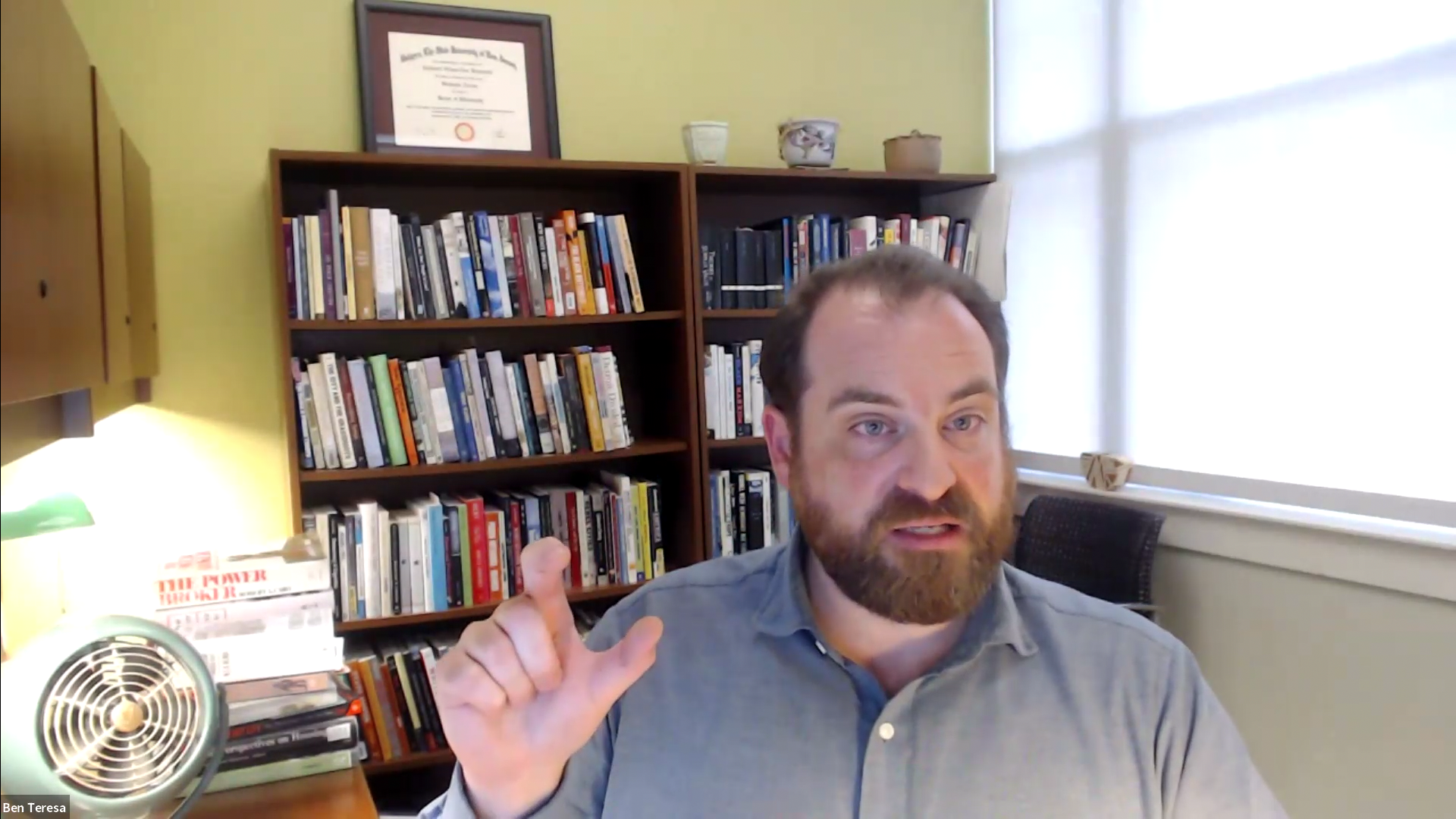News
Takeaways: Wilder School Lunch and Learn on Virginia’s Eviction Crisis

By Tiffany Murray-Robertson
In the September session of the Wilder School Lunch and Learn series, entitled "Locked Out: Rising Evictions Threaten Housing Stability in Virginia," housing experts Benjamin 'Ben' Teresa and Chelsie Dunn took a closer look at a critical and often overlooked crisis facing the state: eviction. The event, hosted by the L. Douglas Wilder School of Government and Public Affairs, focused on the complex forces driving evictions and what can be done to address housing instability.
Teresa, associate professor of urban and regional planning at the Wilder School and director of the RVA Eviction Lab, didn’t waste any time breaking down the issue. “By eviction, we really mean the threat, either the fact or the threat of a forced tenant move—a move that the tenant and the household did not expect to make voluntarily,” Teresa explained. His opening remarks highlighted a stark reality: eviction is not always what it seems.
“Many renters are displaced simply by their landlord not offering a lease renewal,” Teresa added, pointing to a common but lesser-known form of forced tenant displacement that never shows up in official court records. In fact, Teresa said, “Evictions through the legal process may capture as little as one fifth or 20% maybe to as much as half of all forced renter moves.” These so-called informal evictions are quietly happening across the state, and many tenants have no recourse.
Dunn, senior research associate at the Wilder School’s Research Institute for Social Equity (RISE), framed Teresa’s research in a larger context during her introduction. “Ben’s work is about producing knowledge that is useful for the people and communities who are most affected by urban political economic change to develop political capacity and autonomy to collectively shape their future,” she said, underscoring the urgency of addressing housing instability at its roots.
“Eviction isn’t just a legal issue—it’s a public health crisis, a racial equity issue, and a moral failure if we don’t act.”
– Ben Teresa
The numbers speak for themselves. In 2023 alone, Virginia eviction courts issued more than 36,000 judgments without tenants even present. “That’s about 65% of all judgments,” Teresa noted, a telling statistic that reveals how many renters are unable—or unaware—of how to defend themselves in court.
Children, Teresa pointed out, are among the most affected by housing instability. “The most common age to be threatened with eviction in the United States is between birth and 19 years old,” Teresa said, revealing a sobering reality about who bears the brunt of this crisis.
Virginia’s Rent Relief Program, once hailed as a model of success, was praised for lowering eviction rates during the pandemic. “Virginia’s rent relief program... has been identified as one of the best run programs of any state in the US,” Teresa acknowledged. But that success was short-lived. “As those measures ended, unfortunately we also see an increase toward those pre-pandemic averages,” he said, signaling a return to the status quo.
One of the key drivers of this return? Rising rents. Teresa explained that while many tenants are offered lease renewals, they often come with rent increases that are simply unaffordable. “Many tenants are offered lease renewals, but at higher rents that increasingly accompany them,” he said, emphasizing how these rent hikes often force tenants to move, even without formal eviction filings.
Teresa didn’t stop at just outlining the problem. He also addressed the larger, systemic forces at play—specifically, how market concentration and monopolistic practices by large-scale landlords are driving rents up and forcing people out. “Ownership concentration also increases eviction filings,” he said, explaining how larger property owners are quicker to file evictions than smaller landlords. The result? More housing instability, especially for vulnerable groups.
When Dunn opened the floor for questions, the discussion turned toward solutions. Teresa pointed to one clear strategy: rent stabilization. “One of the ways to address this is rent stabilization,” Teresa said. Such policies could cap rent increases, preventing tenants from being priced out of their homes.
Collective action, Teresa added, is just as important as policy reform. He pointed to organizations like the Richmond Tenants Union and Housing Opportunities Made Equal as key advocates in the fight for tenant rights. “These organizations are on the front lines of this fight,” Teresa said, encouraging those facing eviction to seek support from these groups.
As the session drew to a close, Teresa left the audience with a final, sobering thought: “Eviction isn’t just a legal issue—it’s a public health crisis, a racial equity issue, and a moral failure if we don’t act.”
For those looking to dive deeper into this growing crisis, the full session is available for viewing on the Wilder School’s YouTube channel.